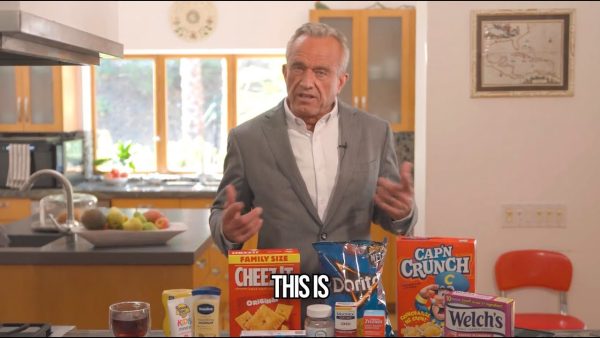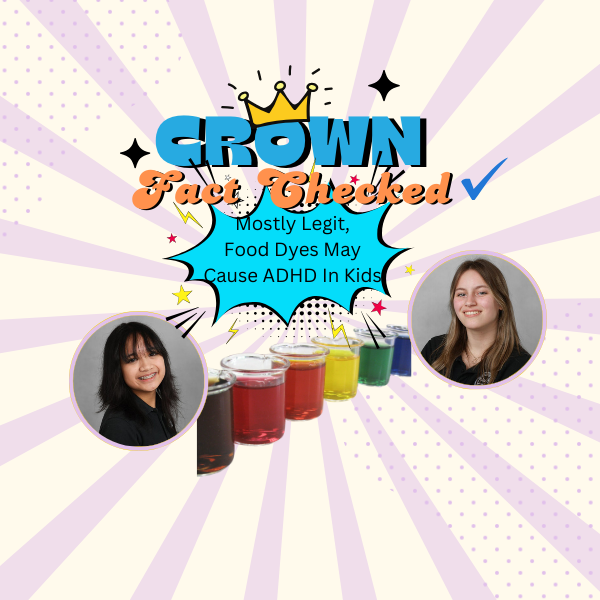The Claim
President-elect Donald Trump has picked Robert F. Kennedy Jr. to be his next secretary of the Department of Health and Human Services (HHS). Trump chose Kennedy to “go wild” with health and food policy. One of Kennedy’s task when Trump takes office is to overhaul and restructure the U.S. Food and Drug Administration (FDA). One of Kennedy goals is to remove food dyes from food claiming that they cause cancer and attention-deficit/hyperactivity disorder. Although some clinical studies have linked hyperactivity in children to dyes, there is no direct evidence to support the claim.
According to a Barrons.com article “The Food Dye Issue is Back in the Spotlight. Is a Ban Coming,” Kennedy said during his presidential bid, “I’m just gonna tell the cereal companies: Take all the dyes out of their food.”
In a post on X, Kennedy claims that “ultra-processed food is driving the obesity epidemic.” and has linked it to cancer and mental health conditions.

Who’s behind the information?
Robert F. Kennedy Jr. is the son of assassinated Senator Robert F. Kennedy and nephew of John F. Kennedy, the 35th President of the United States. Kennedy is an environmental lawyer who has advocated for children’s health and against chemicals, pollutants, and additives that contribute to chronic disease. He dropped out of the 2024 presidential election. He is known anti-vaccine activist. He has stated that colored additives have a connection to ADHD in children.
Look Into the Evidence & What Experts Say
In 1990 the Food and Drug Administration noted that Red Dye 3 caused thyroid tumors in laboratory rats. Experts acknowledge that many of the chemicals found in food dyes have not been reviewed for over 50 years or more, said Scott Faber, senior vice president of government affairs at Environmental Working Group, an agricultural and food safety nonprofit.
A 2023 study published in Toxicology Reports indicated that the rise of colon cancer in young people may be linked to Red Dye 40 and results indicate, according to the study, “Red 40 damages DNA both in vitro and in vivo and that consumption of a high-fat diet for 10 months leads low-grade colonic inflammation in mice.”
A Environmental Protection Agency (EPA) 2021 report linked food dyes with “hyperactivity and other neurobehavioral problems.” A Food dyes were originally manufactured from coal tar and are now made from petroleum, and over time many artificial food dyes have evolved.
In September 2024, California was the first state to pass legislation “California School of Food Safety Act,” that beginning December 31, 2027, certain blue, green, red, and yellow dyes will be banned from California publish schools. The nonprofit Environmental Working Group and the California Medical Association supported California’s bill. Although earlier studies could not find any consistent data to support chemical dyes in food, according to an August 31, 2024 article in USA Today, an FDA spokesperson stated that most children have no “adverse effects” with food that have additives “some evidence suggests certain children may be sensitive.”
Our rating
Earlier scientific studies did not find a correlation between chemical dyes and ADHD in children. However, recent research seems to be moving in the direction that there might be a definitive link between ADHD and colored dyes. Since the current trend is moving closer to legitimately indicating that colored dyes may have a hand in children’s Attention Deficit and Hyperactivity Disorder, we rate this claim as MOSTLY LEGIT.
Although prior research has not been substantial, many new studies are being conducted to determine the correlation between color dyes and cancer. Therefore, we believe that focusing on the hazards of color dyes in food and a variety of illness is MOSTLY LEGIT.




